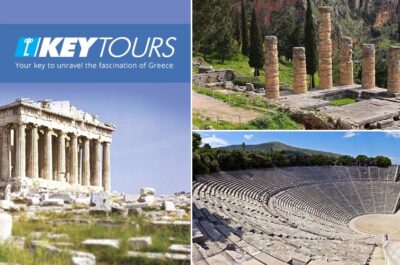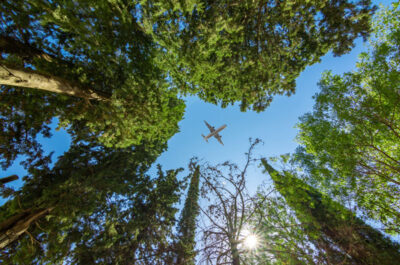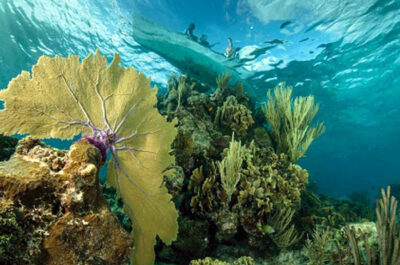The Rapid Sustainable Destination Diagnostic was carried out by the Mesoamerican Reef Tourism Initiative in close collaboration with leading global non-profit Sustainable Travel International, Honduras’ Ministry of Tourism, and Roatán’s local Geotourism Council.
ROATAN, HONDURAS – The island of Roatan is the first tourism destination in Honduras to complete a comprehensive 360-degree assessment and action plan for destination-level sustainability.
The long-term viability of Roatan’s tourism sector is of critical importance to the economic health of Honduras. The idyllic island, renowned for its top diving sites and diverse marine biodiversity, as well as its rich Caribbean culture, draws 55 percent of the 1.8 million annual international arrivals to Honduras. It also generates a significant share of the overall contribution of tourism to GDP which is estimated at 5.8 percent.
The Rapid Sustainable Destination Diagnostic was carried out by the Mesoamerican Reef Tourism Initiative in close collaboration with leading global non-profit Sustainable Travel International, Honduras’ Ministry of Tourism, and Roatán’s local Geotourism Council. The diagnostic process evaluated Roatán’s performance on five key pillars of sustainability, which include sustainable tourism planning and governance, economic linkages, preservation of cultural heritage, social and community issues, and environmental protection.
The results of the destination diagnostic indicate that Roatán is making progress on destination management issues, and highlight the priority areas for the travel and tourism sector to focus on moving forward.
“Roatan ranked highly on the issue of visitor management planning and monitoring, which recognizes the local conservation community’s efforts to minimize tourism’s footprint by promoting environmental practices among tour operators, tour guides and tourists,” said Seleni Matus, Sustainable Travel International’s Vice President of Latin American and the Caribbean, who conducted the assessment. “At the same time, there is an urgent need to establish in situ destination management, incorporate native island culture more deeply as part of Roatán’s tourism product, and tackle waste management and water conservation issues.”
In response to the diagnostic results, more than 50 leaders and leading organizations from the government, private sector and civil society joined forces to define a visionary yet practical roadmap, which will address the critical sustainability issues facing Roatán. The resulting action plan is built around three key initiatives:
- Establishment of a destination management organization (DMO) for the Bay Islands, which includes Roatán, Guanaja and Utila;
- Preservation of native island culture through an inventory of tangible and intangible local, traditional and cultural knowledge, as well as the establishment of a permanent Cultural Marketplace for the promotion of intangible cultural heritage; and
- Development of a destination-level action plan for waste management and water conservation.
Destination stakeholders have also formed Working Groups to help bring these three initiatives to life in the near-term.
“This is an important step for Roatan and Honduras,” said Syntia Solomon Bennett, Honduras’ Vice Minister of Tourism. “These efforts will help put our tourism industry on a sustainable trajectory, and the process will serve as a model to replicate in other tourism destinations in Honduras.”
This project was made possible through the generous support of The Summit Foundation and Royal Caribbean Cruises Ltd’s Ocean Fund.
Roatan joins the ranks of a growing number of tourism destinations that recognize the potential of sustainable destination management to drive economic growth and inclusive development.
Vicky is the co-founder of TravelDailyNews Media Network where she is the Editor-in Chief. She is also responsible for the daily operation and the financial policy. She holds a Bachelor's degree in Tourism Business Administration from the Technical University of Athens and a Master in Business Administration (MBA) from the University of Wales.
She has many years of both academic and industrial experience within the travel industry. She has written/edited numerous articles in various tourism magazines.





































































































































